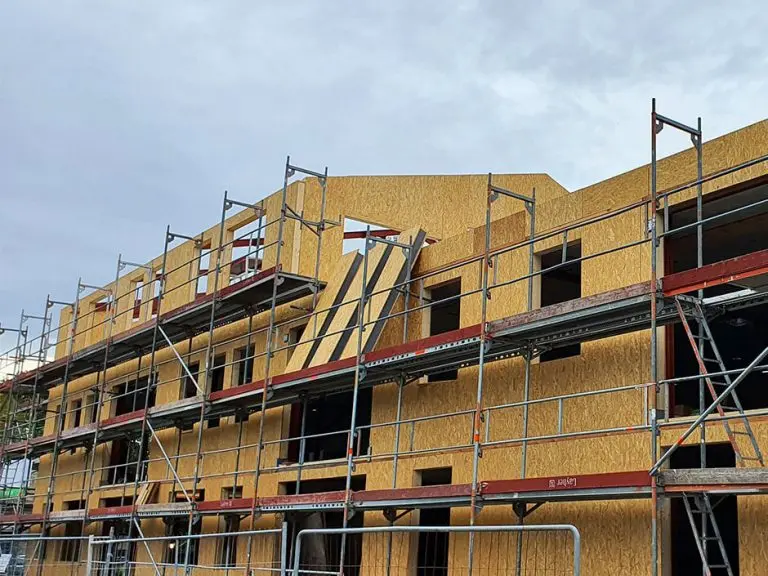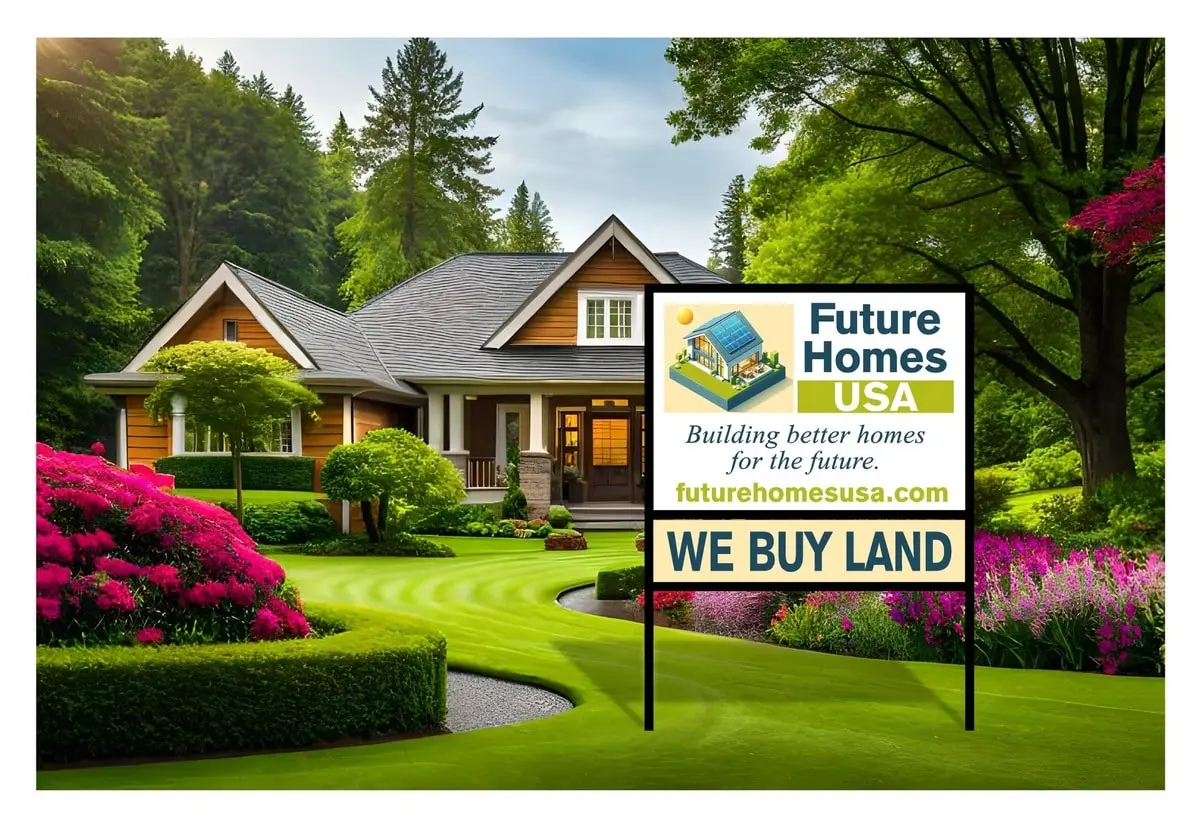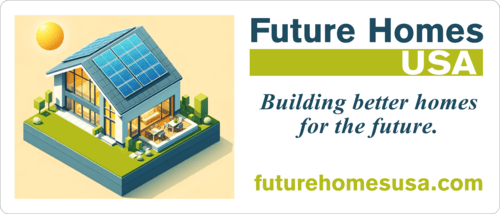How to Build a Sustainable Home with ICF Construction

When it comes to building a home that’s both eco-friendly and energy-efficient, sustainable ICF home construction is a game-changer. This innovative building method uses Insulated Concrete Forms (ICF) to create durable, well-insulated homes that are perfect for reducing energy costs and minimizing your carbon footprint. Whether you’re looking to build from scratch or considering an energy-efficient renovation, ICF construction offers an array of benefits.
Let’s dive into why ICF construction is one of the best choices for anyone looking to go green, save money, and build a house that stands the test of time.
What is ICF Construction?
ICF construction uses interlocking foam blocks filled with concrete to create durable, energy-efficient walls. The foam provides insulation, while the concrete adds strength, resulting in a well-insulated, resilient structure.
To understand the advantages of ICF construction, it’s important to first know how Insulating Concrete Forms (ICF) work and why they make homes naturally energy-efficient.

How Insulating Concrete Forms Work
maintaining a comfortable temperature year-round. The foam blocks themselves provide insulation, helping to keep the interior temperature steady while protecting the concrete from the outside elements.
One of the major benefits of energy-efficient ICF homes is their exceptional insulation properties. The combination of foam and concrete provides superior thermal resistance, keeping your home cooler in the summer and warmer in the winter. This means less reliance on HVAC systems, which translates to significant ICF home energy savings over time. Plus, the airtightness of ICF homes reduces drafts and prevents energy loss, ensuring that your energy use is minimized.
To fully appreciate the benefits of sustainable ICF home construction, consider how its superior insulation, disaster resistance, and long-term energy savings make it a smart investment.
ICF homes boast high R-values (thermal resistance), making them some of the best-insulated homes you can build. This superior insulation helps you save on energy bills by keeping heating and cooling costs low. Furthermore, ICF homes are naturally airtight, which prevents air leaks and ensures that your home stays energy efficient throughout the year.
By investing in a green building with ICF, you’re not only reducing your energy usage, but you’re also helping to reduce the overall carbon footprint of your home. The insulation and airtightness mean that less energy is needed to maintain a comfortable temperature, which lowers greenhouse gas emissions from heating and cooling systems.
One of the lesser-known benefits of eco-friendly ICF construction is its resistance to natural disasters. ICF homes are known to be wind-resistant, fire-resistant, and capable of withstanding seismic activity. This makes them an excellent choice for areas prone to storms, earthquakes, or wildfires. Additionally, because the concrete forms are so durable, these homes require less maintenance and repairs in the long run.
Construction Services
Requesting A Call
Office: (207) 946-6057
Mobile: (207) 599-1086
Yes, we offer free estimates for all potential projects. Contact us to schedule a consultation.
Recent Posts
-
Tiny Homes on Wheels vs. Site-Built Tiny Homes: Which Is Right for You?06 Feb 2026 Energy-Efficient Home
-
Why Tiny Homes Are Part of the Future of Housing16 Jan 2026 Energy-Efficient Home
-
Solar Power House Building: How to Build a Home Optimized for Solar & Energy Efficiency11 Nov 2025 Energy-Efficient Home
-
Portland, ME Home Builders: Your Guide to Building in Portland, Maine25 Oct 2025 Guide for Architects
-
Maine Home Builders: Everything You Need to Know Before Building in Maine13 Oct 2025 Energy-Efficient Home
Get In Touch
Steps to Build a Sustainable ICF Home
For a truly energy-efficient and eco-friendly sustainable ICF home construction, follow these essential steps to improve performance while aligning with your environmental goals.
1. Design for Passive Solar and Energy Efficiency
When planning sustainable ICF home construction, it’s crucial to incorporate passive solar design. This means positioning your home to make the most of natural sunlight, using windows that optimize solar gain, and minimizing energy consumption.
2. Use Low-Carbon Concrete Mixes and Recycled Materials
Opt for low-carbon concrete mixes and try to source recycled materials where possible. This helps make your ICF construction and renewable energy goals even more impactful by ensuring that the building process itself is as sustainable as the final result.
3. Install High-Performance Windows and Doors
Energy-efficient windows and doors are key to maintaining a comfortable temperature without using excessive energy. Ensure they are properly sealed and well-insulated to work in tandem with your energy-efficient ICF homes.
4. Pair ICF with Renewable Energy (Solar, Geothermal, etc.)
Pairing ICF construction with renewable energy systems like solar panels or geothermal heating can dramatically improve your home's sustainability. This combination reduces reliance on fossil fuels and maximizes energy savings.
5. Reduce Construction Waste and Optimize Resources
During the building process, aim to minimize waste by using materials efficiently. Recycle where possible and keep the construction site clean and organized. This further aligns with your eco-conscious goals and ensures that your sustainable ICF home construction process is as efficient as the home itself.
Best Practices for Sustainable Finishes and Systems
To enhance the sustainability and efficiency of your ICF home, consider implementing eco-friendly systems and materials that reduce your environmental impact while improving your home’s comfort.
Use FSC-Certified Wood, Low-VOC Paints, and Non-Toxic Materials
For finishes and interior materials, choose sustainable options such as FSC-certified wood, low-VOC paints, and non-toxic building materials. These choices promote a healthier indoor environment and add to the overall sustainability of the home.
Add ERV/HRV Systems for Better Indoor Air Quality
Installing an Energy Recovery Ventilator (ERV) or Heat Recovery Ventilator (HRV) system helps maintain excellent indoor air quality while keeping energy costs low. These systems exchange stale indoor air with fresh outdoor air while retaining the temperature of the outgoing air, reducing the need for extra heating or cooling.
Install Water-Saving Fixtures and Rainwater Harvesting
To complement your sustainable home, consider adding water-saving fixtures like low-flow faucets, showers, and toilets. Rainwater harvesting systems can also be installed to reduce water consumption and even provide water for irrigation or other non-potable uses.
Cost Considerations for Eco-Friendly ICF Homes
When planning sustainable ICF home construction, weigh the higher initial costs against significant long-term savings from lower energy bills, reduced maintenance, and greater efficiency.
Upfront vs. Long-Term Savings
While the upfront costs of sustainable ICF home construction may be higher than traditional homes, the long-term savings on energy bills make it a worthwhile investment. Over time, the savings from lower maintenance and reduced energy use can easily outweigh the initial investment.
Available Green Building Tax Credits and Incentives
Many regions offer tax credits or incentives for building energy-efficient homes. Be sure to check for any local, state, or federal programs that can help offset the cost of building your eco-friendly ICF home design for energy efficiency.
Final Thoughts: Why ICF is the Future of Sustainable Home Building
Incorporating ICF construction and renewable energy into your building plans offers immense benefits in terms of energy efficiency, sustainability, and long-term cost savings. Whether you’re looking to reduce your carbon footprint or simply build a durable, comfortable home, sustainable ICF home construction is an excellent choice. Ready to build your eco-friendly dream home?
Contact us today to learn more about ICF home construction and start planning your sustainable home.
Office
(207) 946-6057
Email Address
info@futurehomesusa.com
Our Address
624 US-202, Greene, ME 04236
Mobile
(207) 599-1086
Get In Touch
